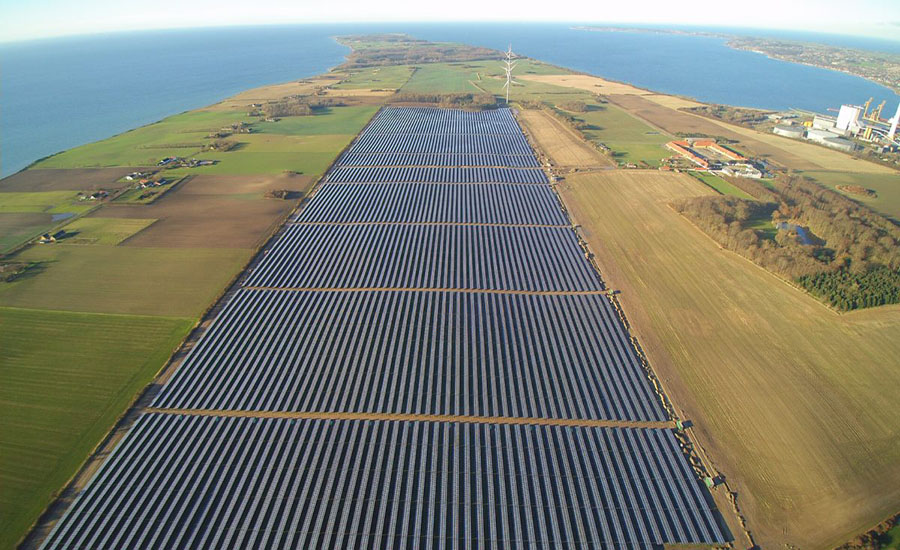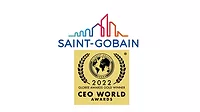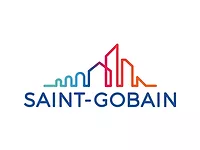Climate News
Saint-Gobain Inks Huge Renewable Energy Agreement for North America
Third PPA deal entered into since 2020 will significantly offset company’s U.S. and Canadian carbon footprint

Danish Fields, shown above and below, is the third PPA signed in North America by Saint-Gobain. The first, with the Blooming Grove Wind Farm in Illinois, was signed in 2020; the second, with TotalEnergies’ Cottonwood Bayou Solar Project in Texas, was signed in 2022.
Photo courtesy of State of Green
Saint-Gobain, the French building envelope corporation that has significantly expanded its North American footprint over the last few years, signed a 15-year renewable electricity supply agreement with TotalEnergies for its 125 industrial sites in North America.
In a September 20 news release announcing the deal, Saint-Gobain said the 100 MW PPA, known as the “Danish Fields Solar Project,” is expected to offset the company’s U.S. and Canadian carbon dioxide scope 2 emissions by 90,000 Metric Tons per year through solar energy. The project is expected to come online by the end of 2024.
Danish Fields is the third PPA signed in North America by Saint-Gobain. The first, with the Blooming Grove Wind Farm in Illinois, was signed in 2020; the second, with TotalEnergies’ Cottonwood Bayou Solar Project in Texas, was signed in 2022.
The company said all three projects have been supported by Edison Energy, a leading energy and sustainability advisory that consults with the largest commercial, industrial and institutional energy users.
“With this agreement, Saint-Gobain North America will further reduce its CO2 emissions, demonstrating how fast the manufacturing industry can transform when long-term solutions are at hand, Mark Rayfield, CEO of Saint-Gobain North America, said.

“This renewable energy project is a new milestone on the way to meeting Saint-Gobain’s commitment to reduce scope 1 and 2 CO2 emissions by 33% by 2030 — compared to 2017 — and to reach carbon neutrality by 2050,” he added.
The combined three projects are expected to represent a more than 70% reduction in Saint-Gobain North America’s scope 2 emissions compared to 2017 levels. This project follows several other recent actions taken by the company to solidify its commitment to sustainability:
- Last month, Saint-Gobain announced a circular economy initiative in its Ceramics business, where scrap finished goods from its Bryan, Texas facility are sent to other Saint-Gobain Ceramics plants to be reused in production instead of ending in landfills.
- In July, the company announced upgrades at its CertainTeed Insulation plant in Athens, GA. It is projected to save over 7,300 MWh of energy and 20 million gallons of water annually while reducing landfill waste by over 5,000 MT.
- Also in July, Saint-Gobain announced the opening of a new CertainTeed Architectural facility in Conyers, GA, which will be co-located with finishing partner QPC, allowing the company to drastically reduce the distance products must travel to finalize production, reducing carbon emissions by over 50 million pounds per year.
- In June, Saint-Gobain announced that it had been awarded a 2023 SEAL Business Sustainability Award for its work to create the first “net zero-carbon” gypsum wallboard facility for scope 1 and 2 emissions in North America at its plant outside Montreal, Quebec.
- In May, CertainTeed Siding announced the completion of a sub-metering system at its Jackson, Michigan Siding facility, saving more than 9 million gallons of water annually.
- In April, CertainTeed Canada surpassed one million tons of gypsum recycled and returned to production at its Vancouver plant.
- In February, Saint-Gobain, through its building products subsidiary CertainTeed Roofing, acquired the rights to technology from recycling partner Asphaltica that will allow the company to recycle asphalt shingle waste, diverting it from landfill and furthering the company’s commitment to creating a circular economy in its production of roofing shingles.
“Saint-Gobain continues to prove its dedication to sustainability through innovation and a multifaceted approach to de-carbonization,” said Joey Lange, managing director, Energy Supply Advisory, Edison Energy. “Edison Energy is proud to support Saint-Gobain’s renewable energy procurement in North America and looks forward to seeing all three utility-scale projects generating renewable energy in the near future.”
For more information, visit saint-gobain.com.
Looking for a reprint of this article?
From high-res PDFs to custom plaques, order your copy today!








